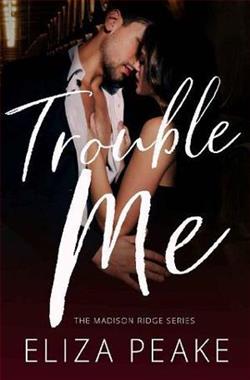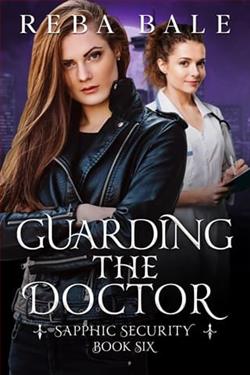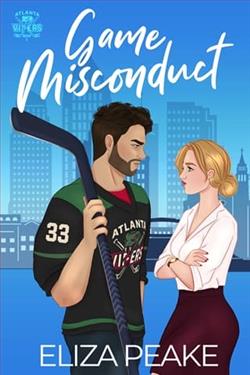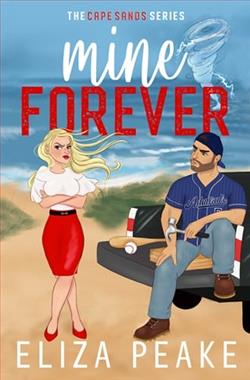Page 3 of The Waste Lands (The Dark Tower 3)
" 'I do not aim with my hand; she who aims with her hand has forgotten the face of her father.
" 'I aim with my eye.
" 'I do not shoot with my hand; she who shoots with her hand has forgotten the face of her father.
" 'I shoot with my mind.
" 'I do not kill with my gun--' "
She broke off and pointed at the mica-shiny stones on the boulder.
"I'm not going to kill anything anyhow--they're just itty bitty rocks."
Her expression--a little haughty, a little naughty--suggested that she expected Roland to be exasperated with her, perhaps even angry. Roland, however, had been where she was now; he had not forgotten that apprentice gunslingers were fractious and high-spirited, nervy and apt to bite exactly at the wrong moment ... and he had discovered an unexpected capacity in himself. He could teach. More, he liked to teach, and he found himself wondering, from time to time, if that had been true of Cort, as well. He guessed that it had been.
Now more crows began to call raucously, these from the forest behind them. Some part of Roland's mind registered the fact that the new cries were agitated rather than merely quarrelsome; these birds sounded as if they had been scared up and away from whatever they had been feeding on. He had more important things to think about than whatever it was that had scared a bunch of crows, however, so he simply filed the information away and refocused his concentration on Susannah. To do otherwise with a 'prentice was to ask for a second, less playful bite. And who would be to blame for that? Who but the teacher? For was he not training her to bite? Training both of them to bite? Wasn't that what a gunslinger was, when you stripped off the few stern lines of ritual and stilled the few iron grace-notes of catechism? Wasn't he (or she) only a human hawk, trained to bite on command?
"No," he said. "They're not rocks."
She raised her eyebrows a little and began to smile again. Now that she saw he wasn't going to explode at her as he sometimes did when she was slow or fractious (or at least not yet), her eyes again took on the mocking sun-on-steel glint he associated with Detta Walker. "They ain't?" The teasing in her voice was still good-natured, but he thought it would turn mean if he let it. She was tense, keyed up, her claws already halfway out of their sheaths.
"No, they ain't," he said, returning her mockery. His own smile began to return, but it was hard and humorless. "Susannah, do you remember the honk mahfahs?"
Her smile began to fade.
"The honk mahfahs in Oxford Town?"
Her smile was gone.
"Do you remember what the honk mahfahs did to you and your friends?"
"That wasn't me," she said. "That was another woman." Her eyes had taken on a dull, sullen cast. He hated that look, but he also liked it just fine. It was the right look, the one that said the kindling was burning well and soon the bigger logs would start to catch.
"Yes. It was. Like it or not, it was Odetta Susannah Holmes, daughter of Sarah Walker Holmes. Not you as you are, but you as you were. Remember the fire-hoses, Susannah? Remember the gold teeth, how you saw them when they used the hoses on you and your friends in Oxford? How you saw them twinkle when they laughed?"
She had told them these things, and many others, over many long nights as the campfire burned low. The gunslinger hadn't understood everything, but he had listened carefully, just the same. And remembered. Pain was a tool, after all. Sometimes it was the best tool.
"What's wrong with you, Roland? Why you want to go recallin that trash in my mind?"
Now the sullen eyes glinted at him dangerously; they reminded him of Alain's eyes when good-natured Alain was finally roused.
"Yonder stones are those men," Roland said softly. "The men who locked you in a cell and left you to foul yourself. The men with the clubs and the dogs. The men who called you a nigger cunt."
He pointed at them, moving his finger from left to right.
"There's the one who pinched your breast and laughed. There's the one who said he better check and see if you had something stuffed up your ass. There's the one who called you a chimpanzee in a five-hundred-dollar dress. That's the one that kept running his billyclub over the spokes of your wheelchair until you thought the sound would send you mad. There's the one who called your friend Leon pinko-fag. And the one on the end, Susannah, is Jack Mort.
"There. Those stones. Those men."
She was breathing rapidly-now, her bosom rising and falling in swift little jerks beneath the gunslinger's gunbelt with its heavy freight of bullets. Her eyes had left him; they were looking at the mica-flecked chips of stone. Behind them and at some distance, a tree splintered and fell over. More crows called in the sky. Deep in the game which was no longer a game, neither of them noticed.
"Oh yeah?" she breathed. "That so?"
"It is. Now say your lesson, Susannah Dean, and be true."
This time the words fell from her lips like small chunks of ice. Her right hand trembled lightly on the arm of her wheelchair like an idling engine.
" 'I do not aim with my hand; she who aims with her hand has forgotten the face of her father.
" 'I aim with my eye.' "
"Good."
" 'I do not shoot with my hand; she who shoots with her hand has forgotten the face of her father.
" 'I shoot with my mind.' "
"So it has ever been, Susannah Dean."
" 'I do not kill with my gun; she who kills with her gun has forgotten the face of her father.
" 'I kill with my heart.' "
"Then KILL them, for your father's sake!" Roland shouted. "KILL THEM ALL!"
Her right hand was a blur between the arm of the chair and the butt of Roland's sixgun. It was out in a second, her left hand descending, fanning at the hammer in flutters almost as swift and delicate as the wing of a hummingbird. Six flat cracks pealed off across the valley, and five of the six chips of stone set atop the boulder blinked out of existence.
For a moment neither of them spoke--did not even breathe, it seemed--as the echoes rolled back and forth, dimming. Even the crows were silent, at least for the time being.
The gunslinger broke the silence with four toneless yet oddly emphatic words: "It is very well."
Susannah looked at the gun in her hand as if she had never seen it before. A tendril of smoke rose from the barrel, perfectly straight in the windless silence. Then, slowly, she returned it to the holster below her bosom.
"Good, but not perfect," she said at last. "I missed one."
"Did you?" He walked over to the boulder and picked up the remaining chip of stone. He glanced at it, then tossed it to her.
She caught it with her left; her right stayed near the holstered gun, he saw with approval. She shot better and more naturally than Eddie, but had not learned this particular lesson as swiftly as Eddie had done. If she had been with them during the shootout at Balazar's nightclub, she might have. Now, Roland saw, she was at last learning that, too. She looked at the stone and saw the notch, barely a sixteenth of an inch deep, in its upper corner.
"You only clipped it," Roland said, returning to her, "but in a shooting scrape, sometimes that's all you need. If you clip a fellow, throw his aim off ..." He paused. "Why are you looking at me that way?"
"You don't know, do you? You really don't?"
"No. Your mind is often closed to me, Susannah."
There was no defensiveness in his voice, and Susannah shook her head in exasperation. The rapid turn-and-turn-about dance of her personality sometimes unnerved him; his seeming inability to say anything other than exactly what was on his mind never failed to do the same to her. He was the most literal man she had ever met.
"All right," she said, "I'll tell you why I'm looking at you that way, Roland. Because what you did was a mean trick. You said you wouldn't slap me, couldn't slap me, even if I cut up rough . . . but either you lied or you're very stupid, and I know you ain't stupid. People don't always slap with their hands, as every man and woman of my race could testify. We have a little rhyme
where I come from: 'Sticks and stones will break my bones--' "
" '--yet taunts shall never wound me,' " Roland finished.
"Well, that's not exactly the way we say it, but I guess it's close enough. It's bullshit no matter how you say it. They don't call what you did a tongue-lashing for nothing. Your words hurt me, Roland--are you gonna stand there and say you didn't know they would?"
She sat in her chair, looking up at him with bright, stern curiosity, and Roland thought--not for the first time--that the honk mahfahs of Susannah's land must have been either very brave or very stupid to cross her, wheelchair or no wheelchair. And, having walked among them, he didn't think bravery was the answer.
"I did not think or care about your hurt," he said patiently. "I saw you show your teeth and knew you meant to bite, so I put a stick in your jaws. And it worked . . . didn't it?"
Her expression was now one of hurt astonishment. "You bastard!"
Instead of replying, he took the gun from her holster, fumbled the cylinder open with the remaining two fingers on his right hand, and began to reload the chambers with his left hand.
"Of all the high-handed, arrogant--"
"You needed to bite," he said in that same patient tone. "Had you not, you would have shot all wrong--with your hand and your gun instead of your eye and mind and heart. Was that a trick? Was it arrogant? I think not. I think, Susannah, that you were the one with arrogance in her heart. I think you were the one with a mind to get up to tricks. That doesn't distress me. Quite the opposite. A gunslinger without teeth is no gunslinger."
"Damn it, I'm not a gunslinger!"
He ignored that; he could afford to. If she was no gunslinger, then he was a billy-bumbler. "If we were playing a game, I might have behaved differently. But this is no game. It . . ."
His good hand went to his forehead for a moment and paused there, fingers tented just above the left temple. The tips of the fingers, she saw, were trembling minutely.
"Roland, what's ailing you?" she asked quietly.
The hand lowered slowly. He rolled the cylinder back into place and replaced the revolver in the holster she wore. "Nothing."
"Yes there is. I've seen it. Eddie has, too. It started almost as soon as we left the beach. It's something wrong, and it's getting worse."
"There is nothing wrong," he repeated.
She put her hands out and took his. Her anger was gone, at least for the time being. She looked earnestly up into his eyes. "Eddie and I . . . this isn't our world, Roland. Without you, we'd die here. We'd have your guns, and we can shoot them, you've taught us to do that well enough, but we'd die just the same. We . . . we depend on you. So tell me what's wrong. Let me try to help. Let us try to help."
He had never been a man who understood himself deeply or cared to; the concept of self-consciousness (let alone self-analysis) was alien to him. His way was to act--to quickly consult his own interior, utterly mysterious workings, and then act. Of them all, he had been the most perfectly made, a man whose deeply romantic core was encased in a brutally simple box which consisted of instinct and pragmatism. He took one of those quick looks inside now and decided to tell her everything. There was something wrong with him, oh yes. Yes indeed. Something wrong with his mind, something as simple as his nature and as strange as the weird, wandering life into which that nature had impelled him.
He opened his mouth to say I'll tell you what's wrong, Susannah, and I'll do it in just three words. I'm going insane. But before he could begin, another tree fell in the forest--it went with a huge, grinding crash. This treefall was closer, and this time they were not deeply engaged in a test of wills masquerading as a lesson. Both heard it, both heard the agitated cawing of the crows which followed it, and both registered the fact that the tree had fallen close to their camp.
Susannah had looked in the direction of the sound but now her eyes, wide and dismayed, returned to the gunslinger's face. "Eddie!" she said.
A cry rose from the deep green fastness of the woods in back of them--a vast cry of rage. Another tree went, and then another. They fell in what sounded like a hail of mortar-fire. Dry wood, the gunslinger thought. Dead trees.
"Eddie!" This time she screamed it. "Whatever it is, it's near Eddie!" Her hands flew to the wheels of her chair and began the laborious job of turning it around.
"No time for that." Roland seized her under her arms and pulled her free. He had carried her before when the going was too rough for her wheelchair--both men had--but she was still amazed by his uncanny, ruthless speed. At one moment she was in her wheelchair, an item which had been purchased in New York City's finest medical supply house in the fall of 1962. At the next she was balanced precariously on Roland's shoulders like a cheerleader, her muscular thighs gripping the sides of his neck, his palms over his head and pressing into the small of her back. He began to run with her, his sprung boots slapping the needle-strewn earth between the ruts left by her wheelchair.
"Odetta!" he cried, reverting in this moment of stress to the name by which he had first known her. "Don't lose the gun! For your father's sake!"
He was sprinting between the trees now. Shadow-lace and bright chains of sun-dapple ran across them in moving mosaics as Roland lengthened his stride. They were going downhill now. Susannah raised her left hand to ward off a branch that wanted to slap her from the gunslinger's shoulders. At the same moment she dropped her right hand to the butt of his ancient revolver, cradling it.
A mile, she thought. How long to run a mile? How long with him going flat-out like this? Not long, if he can keep his feet on these slippery needles . . . but maybe too long. Let him be all right, Lord--let my Eddie be all right.
As if in answer, she heard the unseen beast loose its cry again. That vast voice was like thunder. Like doom.
2
HE WAS THE LARGEST creature in the forest which had once been known as the Great West Woods, and he was the oldest. Many of the huge old elms which Roland had noticed in the valley below had been little more than twigs sprouting from the ground when the bear came out of the dim unknown reaches of Out-World like a brutal, wandering king.
Once, the Old People had lived in the West Woods (it was their leavings which Roland had found from time to time during the last weeks), and they had gone in fear of the colossal, undying bear. They had tried to kill him when they first discovered they were not alone in the new territory to which they had come, but although their arrows enraged him, they did no serious damage. And he was not confused about the source of his torment, as were the other beasts of the forest--even the predatory bushcats which denned and littered in the sandhills to the west. No; he knew where the arrows came from, this bear. Knew. And for every arrow which found its mark in the flesh below his shaggy pelt, he took three, four, perhaps as many as half a dozen of the Old People. Children if he could get them; women if he could not. Their warriors he disdained, and this was the final humiliation.
Eventually, as his real nature became clear to them, their efforts to kill him ceased. He was, of course, a demon incarnate--or the shadow of a god. They called him Mir, which to these people meant "the world beneath the world." He stood seventy feet high, and after eighteen or more centuries of undisputed rule in the West Woods, he was dying. Perhaps the instrument of his death had at first been a microscopic organism in something he had eaten or drunk; perhaps it was old age; more likely a combination of both. The cause didn't matter; the ultimate result--a rapidly multiplying colony of parasites foraging within his fabulous brain--did. After years of calculating, brutal sanity, Mir had run mad.
The bear had known men were in his woods again; he ruled the forest and although it was vast, nothing of importance which happened there escaped his attention for long. He had drawn away from the newcomers, not because he was afraid but because he had no business with them, nor they with him. Then the parasites had begun their work, and as his madness increased he became sure that it was the Old People again, that the trap-setters and forest-burners had retur
ned and would soon set about their old, stupid mischief once more. Only as he lay in his final den some thirty miles from the place of the newcomers, sicker with each day's dawning than he had been at sunset the night before, had he come to believe that the Old People had finally found some mischief which worked: poison.
He came this time not to take revenge for some petty wound but to stamp them out entirely before their poison could finish having its way with him . . . and as he travelled, all thought ceased. What was left was red rage, the rusty buzz of the thing on top of his head--the turning thing between his ears which had once done its work in smooth silence--and an eerily enhanced sense of smell which led him unerringly toward the camp of the three pilgrims.
The bear, whose real name was not Mir but something else entirely, made his way through the forest like a moving building, a shaggy tower with reddish-brown eyes. Those eyes glowed with fever and madness. His huge head, now wearing a garland of broken branches and fir-needles, swung ceaselessly from side to side. Every now and then he would sneeze in a muffled explosion of sound--AH-CHOW!--and clouds of squirming white parasites would be discharged from his dripping nostrils. His paws, armed with curved talons three feet in length, tore at the trees. He walked upright, sinking deep tracks in the soft black soil under the trees. He reeked of fresh balsam and old, sour shit.
The thing on top of his head whirred and squealed, squealed and whirred.
The course of the bear remained almost constant: a straight line which would lead him to the camp of those who had dared return to his forest, who had dared fill his head with dark green agony. Old People or New People, they would die. When he came to a dead tree, he sometimes left the straight path long enough to push it down. The dry, explosive roar of its fall pleased him; when the tree had finally collapsed its rotten length on the forest floor or come to rest against one of its mates, the bear would push on through slanting bars of sunlight turned misty with floating motes of sawdust.















